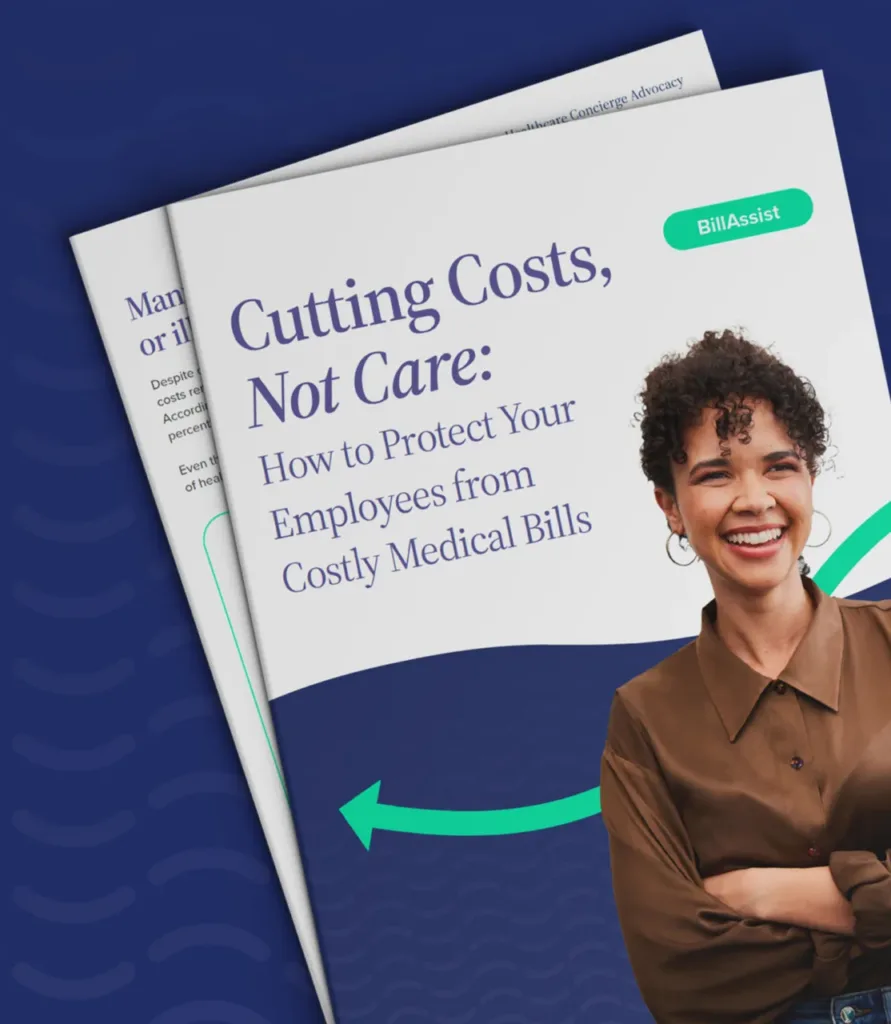Each year, employers—and their HR teams—spend countless hours, effort and resources putting together healthcare benefit packages that they hope will meet the unique needs of their employees at an affordable cost. Many large employers—80%—have turned to wellness programs to hopefully drive down costs and empower employees to be better stewards of their healthcare. But, according to an 18-month study published in JAMA, wellness programs show no significant effects on healthcare spending or behavior. The truth is: people don’t think about their health benefits until they need to use them. If employers want to lower healthcare costs—it needs to happen in real-time—when their employees need care. Read on to learn about healthcare navigation and why it’s critical for organizations and employees.
1. Healthcare navigators help your workforce avoid care at high-cost facilities.
When employees enroll in an employer-sponsored health plan, they’re playing a guessing game—hoping the plan they choose will work for the year to come. But when employees choose a health plan option in November, they have no idea what their actual health will look like in June. If an employee is young and healthy, or looking for a more affordable plan, they may opt for a high-deductible health plan (HDHP). While HDHPs typically have lower premiums, out-of-pocket expenses could reach $7,050 for an individual and $14,100 for a family—putting some employees one health issue away from medical debt and financial ruin. That’s why healthcare navigation is instrumental. Healthcare navigators guide employees through the complex healthcare market to access the highest-quality care at the most affordable cost.
2. Healthcare is complex. Navigators simplify it.
Depending on the health plan, deductible, coinsurance etc., out-of-pocket costs for the same treatment can vary drastically at different facilities. Health benefits, and the opaque way care is priced and paid for, have become so complex that even industry experts can’t understand it all. How can we expect patients to self-educate enough to make good choices for themselves? We can’t. Navigators take that burden off patient shoulders and present clear choices, payment options and real-time interaction to connect that employee to a lower-cost provider with top-quality rankings. All it takes is a phone call or an email.
3. When employees save on healthcare, so do their employers.
Healthcare costs for employers and employees are becoming unsustainable. According to a Kaiser Family Foundation report, the average premium cost per employee paid by employers has increased by 47% over the last ten years and is only expected to rise in 2023 and beyond. And unpaid medical bills have become the largest source of debt that Americans—even those who are insured—owe collections agencies. Navigators can save both employees and employers BIG.
Looking for imaging services that won’t break the bank? Navigators can provide the employee with a list of locations and the out-of-pocket costs associated with each, making it simple to save. And when employees save, so do employers. Healthcare navigation companies are purpose-built to eliminate medical waste for employers by helping employees optimize their benefit choices—asking the right questions and proactively guiding them toward quality and affordable care before they seek treatment.
4. Healthcare navigators help employees throughout their entire care journey
Healthcare navigators guide employees confidently throughout their entire healthcare experience, even after care is provided. Experienced healthcare navigators will advocate on the employee’s behalf, resolving issues with bills and appealing denied coverage. If employees can’t pay a high-cost bill, healthcare navigators will work to negotiate out-of-pocket costs or obtain an extended payment plan.
5. Healthcare navigators can help curb disruption
HR leaders worry about disruption—and that’s a fair concern. Anytime an employer group introduces something new, HR teams can expect questions or concerns from their people. While it may be easier to stick to the status quo, we know that doing so will yield the same high-cost, low-satisfaction results. A good healthcare navigation partner will act as a trusted resource, making implementation as seamless as possible. They will work to address concerns, lower costs and provide a better member experience—an experience that puts health and well-being first.
Healthcare navigators align with the expert care advice of your doctors and help to provide more choices for treatment with cost savings in mind. At Emry Health, our team is made up of experienced and highly trained U.S.-based CareCost Guides, completely focused on getting employees the highest quality of care at the lowest cost. We typically yield ROIs more than 200% by reducing employer cost and enabling saving for employees.
Learn more about how we help employees navigate their health benefits, select treatment, and lower the overall cost of care. Visit emryhealth.com
Glossary of Industry Terms
High-Deductible Health Plan: A plan with a higher deductible than a traditional insurance plan. The monthly premium is usually lower, but you pay more health care costs yourself before the insurance company starts to pay its share (your deductible).
Wellness Program: A program intended to improve health and fitness that’s offered through the workplace. The program allows your employer or plan to offer you discounts, cash rewards, gym memberships, and other incentives to participate. Some examples of wellness programs include programs to help you stop smoking, diabetes management programs, weight loss programs, and preventative health screenings.
Premiums: Agreed upon fees paid for coverage of medical benefits for a defined benefit period.
Independent Healthcare Navigator: An individual or organization that’s trained and able to help consumers, small businesses, and their employees as they look for health coverage and care. These individuals and organizations are required to be unbiased and can help consumers navigate through complexity that exists within the care journey. Their services are free to consumers.
HR Disruption: Any company change that impacts employees and may present challenges or obstacles for an internal HR team.



